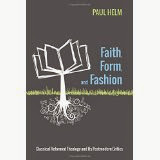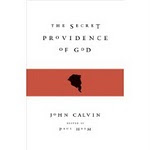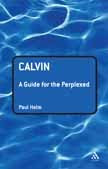Here is what I think, (without much research to back it up - a hunch, therefore). In the period of
Puritanism (or confessional Calvinism) in England between the 1620’s (when
Ames’ Medulla, first given as
lectures in Holland while an exile there, was published), and the calling of
the Westminster divines, a significant change seems to have occurred. The divines were assembled
by the Long Parliament to revise the 39 Articles of the Church to England and
in time they were charged with the task of promoting it as the ‘church established’
with a presbyterian polity. The Westminster Confession and Catechisms were the most significant lasting consequences.
Of course in this period of upheaval very
many changes occurred, but the one that concerns me here is the expression of sanctification, and
particularly the prominence that the place of the law as a rule of living in
the Christian life, the so-called third use of the law, was emphasised. There was a conflation of the law in its function of keeping order in society, and its place in the life of the church. The
Reformed view is that the law is to restrain evil, and to show men and women
their need, and to be a rule of life. So chief among the requirements of the Christian life is the
duty to keep the moral law expressed in the Decalogue and endorsed by Christ
and the apostles.
We shall not be concerned with any real or imagined substantive change in what were regarded as the ethical norms of the law, and their place in the
Christian life, and with how such norms should be conceptualized and expressed. The hunch that I have, which is certainly not the result of the deep trawling of
documents, but fed by a comparison of only two documents, though each may fairly be
called representative, though in different ways. Ames is known for The Marrow of Sacred Theology, originally published in Latin and
then translated into English in 1623. Comparing that with the Westminster standards reveals significant differences. It is the difference between the outlook of one such as Ames, who experienced exile, and that
of the establishment, or of prospective establishment, of the church. I shall try
to explain.
In the time of Ames, the Puritans, who when
they were allowed freedom and not being persecuted or repressed, were a
vigorous, reforming party of the Elizabethan Church of England, interrupted by
Mary, and harassed by Charles I. Ames’s life (1576- 1633) initially followed this sort of
trajectory. Prosecuted by the bishop of London, the stalwart Calvinist George Abbot,
for various Puritan leanings, Ames went to Holland in 1610, serving churches of English
merchants. Some of his lectures became his Medulla, The Marrow of
Theology, dedicated to them. There was an
English translation, and numerous reprints. But as the arm of the bishop
reached as far as The Hague, Ames lost support. However, he gained a Dutch appointment as
professor of theology at Franeker. Efforts to move to Leyden were thwarted,
again because of interfering English authorities. At Franeker Ames had
Sibrandus, Lubbertius, Maccovius and Batholemew Keckermann as colleagues. Ames, a
covenant theologian and supralapsarian,
wrote extensively against Bellarmine, and produced his famous book Conscience: Its Law or Cases, translated
into English and Dutch. Living in Holland during the period of the Synod of Dort, he wrote extensively on Arminianism. In the Medulla
his own scholasticism is muted. In English translation the work largely consists of brief summaries of theological positions in what was a compendium of
theology, not a set of elaborate discussions. What is certain is that Ames was concerned
with the application of theology to Christian life.
During this time Ames was urged to join the exodus
to New England. Instead he became pastor of the Independent congregation in
Rotterdam. After his home suffered flooding Ames suffered from fever and he died shortly
after. (1633).
His Medulla
consists of two Books, the first on theology proper, and the second on
practical theology. It is a work of covenant theology, though mildly so. In the
first book there is a chapter on sanctification (29), and In book two one on virtue
(2) and the graces of faith, hope, and love (5-7), and on justice and
charity and honour to our neighbour, (16-18). There
is no chapter on the law of God as expressed in the Decalogue.
A
comparison
Compare this with the Longer Catechism of
the Westminster Divines. In this Catechism there are 196 questions and
answers, of which 62 (sixty-two!) are devoted to an exposition of the law of
God, about a third of the whole. Question 91, which begins the questions on the
law, is headed ‘HAVING SEEN WHAT THE
SCRIPTURES PRINCIPALLY TEACH US TO
BELIEVE CONCERNING GOD, IT FOLLOWS TO
CONSIDER WHAT THEY REQUIRE AS THE DUTY OF MAN’. The emphasis is on the duty of men as men in
law-keeping, not as members of the church, or as professors of Christ. The questions
and answers that follow have to do with each of so-called three uses of the
law; of civil restraint, for a rule of life, and for the purpose of conviction
of sin, showing us our need and weakness. (Q.95) There is also some conflation between the Moral Law and the Judicial Law. It is highly likely that the
divines saw their task as the exposition of the law to mirror the law of the state. So (for example) the
seventh commandment forbids ‘lascivious songs, books, pictures, dancings, stage
plays…..’(Q.140); the eight commandment forbids, inter alia, ‘false weights and
measures, removing land-marks, injustice and unfaithfulness in contracts
between man and man….’(Q.142) And so on. (In the Shorter Catechism, questions
39-94 deal with the law, out of a total of 107 questions, just over a half.)
This is a dramatic change, the change from
thinking of the Christian life as the pursuit of and formation of graces or
virtues, with the emphasis on the Christian’s freedom (as in Paul in Galatians), and his or her resurrection with Christ, to thinking of Christian life it in
terms of keeping the law, and of duty. If it is thought primarily in terms of
keeping the law, then no wonder that the catechisms and filled with lists of
new duties, and not at all surprising that the divines looked back to the Old
Testament for these lists.
Next time I shall look at this contrast
between Ames's emphasis on virtue and Westminster's emphasis law in more detail, and consider each in relation to the balance of the NT
between the two. I shall suggest
that Ames’s approach, the approach of the exile, keeps the NT balance better
than do the Westminster divines, working (as they were) on a blueprint for the establishment
of a Reformed church, and with the prospect of such an establishment (as they
thought) just around the corner.
.









